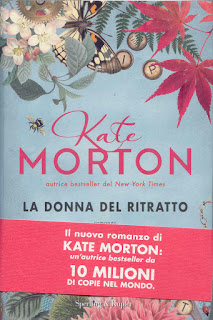Dorian Grori is
an Albanian ballet dancer. From decades in our country, yesterday we largely talked of his personal story. His character, what he thinks of ballet, art and solutions for trying to see the light after this long and depressing tunnel of darkness experienced by the sector these past decades. This interview will reveal also the proud father that he is.
Delicate voice the one of Dorian, with a touch of resoluteness, do we want to start from your name?
"It's realistically my real name this one, Dorian, but yes, I admit, because of The Portrait of Dorian Gray by Oscar Wilde. My aunt was reading that book while I was arriving in this world, and she spread her enthusiasm and winning choice with the rest of our family."
When did you start to fall fascinated by ballet?
"It was a case. I was 9 year and half and I was playing with success violin from more than 4 years when, one day, I was noticed by a coreographer, at that time the only one existing in Albania. I didn't dance ballet, I loved to dance and considering that in our corner of the
world weddings and other feasts are occasions for grown-ups and children for dancing, I just did it. I enjoyed to entertain people with my dancing.
My father was conquered and proud by this idea and so I did the entrance examination at the Academic Ballet School of Tirana. Being a public school, parents didn't pay, but there was a big selection, and that year just eight of us were accepted at the course. It's a good way, this one, because talents emerge with more simplicity."
Can you explain us what is dancing?
"It's discipline, first of all and it is demandig. In every sense.
We don't just search for the dancing side in a potential ballet dancer but also for his/her behavior. I visit many schools during the year and sometimes there are talents. Parents are skeptical to let spread the wings of their children away, in a place distant from their houses, but when there is talent they must permit it.
Ballet is opened to everyone because each of us should and must dance.
A person, just interested to practice ballet at an amatorial level, will anyway develop his/her big cultural level of knowledge. He/she will appreciate theathers, he/she will be a person plenty of grace."
Why did you choose at the end of school and after a year of work at the Theater of the Opera of Tirana, to afford to Italy?
"Italy to me was synonime of art.
I still have this idea but rapidly I noticed that with the arrival of poverty a lot of theaters closed, like many companies, dancers unemployed are constricted to leave Italy for other countries, Germany, France, America, Russia, if they want to continue to dance.
Plus: I don't see a great interest in art in general in these newest generations. We went once in a tournee of a week to Moscow and theater was plenty but what pleasantly shocked me the most, what astonished me was to see that the theater was plenty of very young and interested people about ballet. It says a lot."
According to you how can we all change this sad course of the events?
"To my point of view schools and teachers should give the example. I don't want to say that visiting a garden, or bringing children outside wouldn't be important, but, children should visit theaters, starting to appreciate ballet, classic music, a play, and all the rest of art. In this way some of them will fall in love for art."
In opposite case, if they don't know it, they won't love it. This is true.
Kids. In Italy this one an art populated mainly by female kids in schools.
"I know and I don't agree with that parents that don't want to develop the artistic dancing side of their male kids because of their fears. There is no reason.
I am married, I have two children and I remember also the joys of sharing with my female dancers's collegues some moments of relaxation together when at the Academy of Tirana.
In Albania is an honor to be a ballet dancer. Trust me: if a male kid develops some behaviors considered by parents effeminate, it doesn't depend from dance, it's his attitude and he would develop it also if he would does another completely different hobby or sport. I can tell you this, because realistically dancers must be very viril men, men who must transmit sensuality, feelings, emotions.
Plus, let's speak of it: they must have a lot of energy and strenght. No one focuses on this aspect, but it is crucial for a male ballet dancer. He must be strong He jumps, lifts a dancer many times during a show. He must have a great physicity. The one of the dancer is a daily constant work: six hours per day. It's not a joke.
You won't never notice any kind of tiredness while you see us in public. Apparently the execution of every gesture is natural, simple like drinking a glass of water. Vomit, pains, sufferances are all for the backstage and our private sphere.
Dance adds soul and feeling and one of the main dues for a dancers is to transmit emotions to the public. Dancers must be in grade to enter, when on stage, in that special, own world, for being empathic."
Dorian remembers the years of his studies in the capital of Albania,Tirana.
"I studied there for eight years. The Academy was incredibly hard but every time I returned home I haven't never complained once with my parents. Sometimes I was surprised when my teachers didn't remark something and the lesson passed without reprimends. I knew that I was learning. I also remember that sometimes my teacher touched more or less violently my leg if not satisfied of the extension I was offering. I haven't never complained. These old methods are gone, but...It's something that parents should learn. They should give trust to teachers. When doors are closed children, students are "property" of the teacher and they must trust him/her. It's important. As a ballet teacher I tell you that I I give respect, I pretend respect and I hate disorder. I still am in love with my teachers, the ones of Tirana and the ones I met in Reggio-Emilia, Liliana Cosi and Marinel Stefanescu, because it's thanks to them if I reached my goals and I became who I am."
Let's speak of your two wonderful children.
"I married Greta Lanzi, a girl from Emilia-Romagna. Leonardo and Ludovica. Leonardo is 9 years and Ludovica 6.
To me the creation of a family was very important. I grew up in a wonderful environment, with a beautiful family and this desire started to increase pretty soon in my existence. I settled down at 28 years."
Will your children follow your same career?
"I have some expectations about Ludovica. Leonardo is in love for soccer, and guess what? Leonardo one day said me: I want to do a complete different job, from you, daddy. I was surprised that he said me that, considering that he was still very little.
He plays soccer and he is happy. I am happy and I don't want to force them, they must do what they love the most, developing their talents.
Sure, we live in a reality pretty complicated populated by social medias, virtual life and sometimes I think that it is too much."
Do your children have a smart phone?
"No. I give them all the best in terms of education but no, not smart phones."
You are a teacher of the Nuovo Balletto Classico in Reggio Emilia with
Nicoletta Stefanescu, Elena Casolari and Rezart Stafa. The previous owners Liliana Cosi and Marinel Stefanescu. What kind of teacher are you?
When I start a lesson I must first of all look all my students in the eyes. I must try to see if they are not OK, if they have some problems. A teacher must be first of all a psychologist because each of them have a different key for opening the soul.
You were a coreographer, true?
At the moment I am a dancer and a ballet dancer teacher. Maybe once, when I will want to experiment something else. It's necessary to have special talents for being coreographers and ballet dancer teachers. Not everyone is in grade to do that.
And that violin you left apart?
Oh, I caress my old violin everytime I go to Belluno where my parents live. Who knows, maybe someday I can re-start to play it. The violin is the musical intrument I prefer the most and if one day I will decide to launch myself in the coreography, it would play a large part, for sure.
Anna Maria Polidori





















